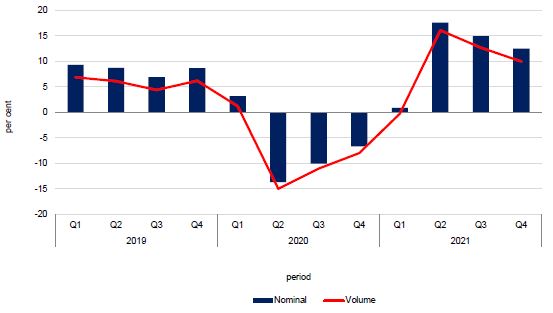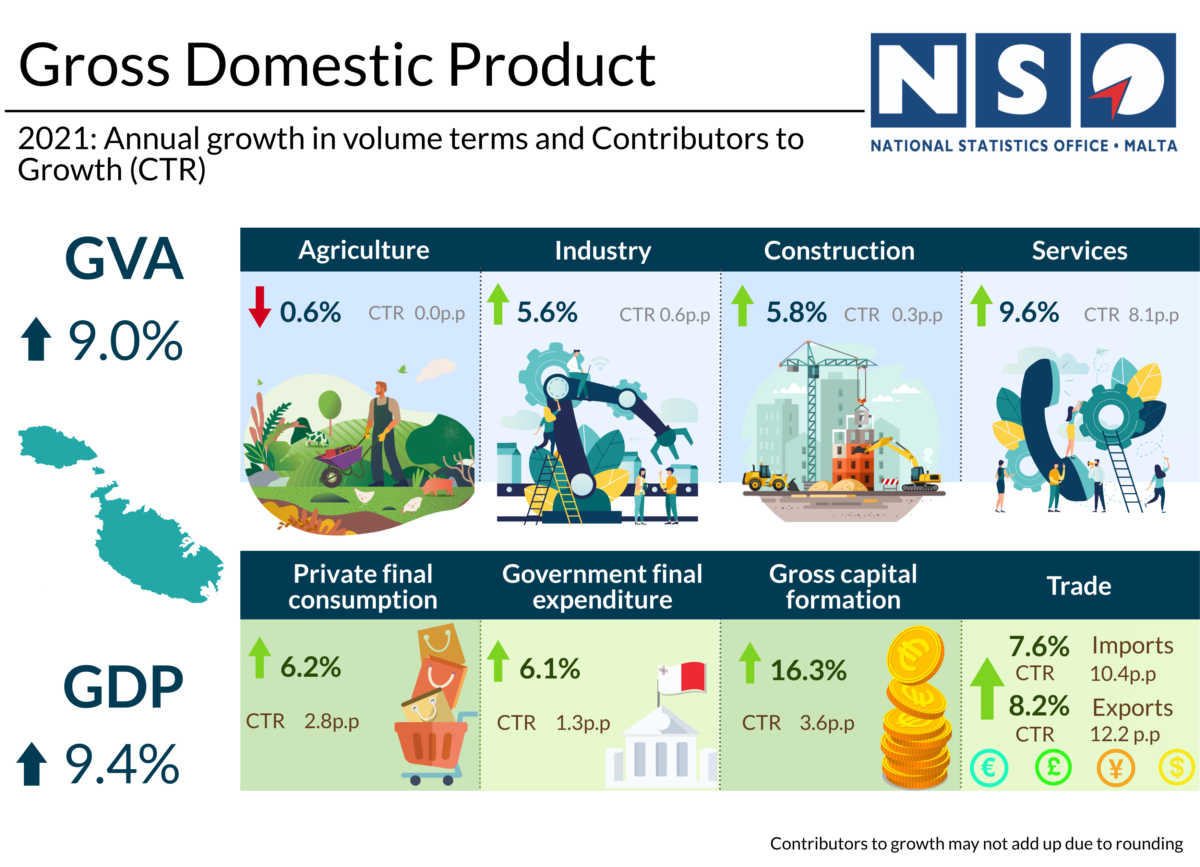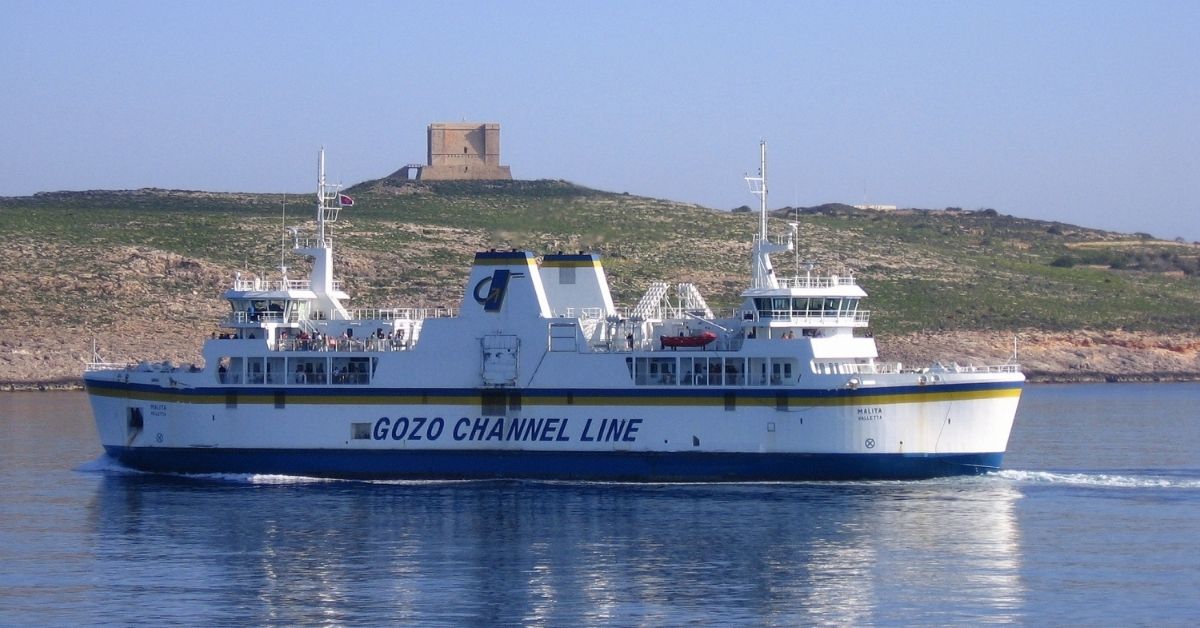Malta registered strong economic growth in 2021 as several sectors kicked back into gear following the deep impacts of widespread restrictions related to the COVID-19 pandemic, with the rebound powered in large part by services.
In total, provisional estimates indicate that the GDP for 2021 amounted to €14.53 billion, registering an increase of €1.47 billion, or 11.3 per cent, when compared to 2020.
In volume terms, GDP rose by 9.4 per cent, following the drop of 8.3 per cent registered a year earlier as a result of the pandemic.

During 2021, Gross Value Added (GVA) rose by 11.4 per cent in nominal terms and by nine per cent in volume terms, when compared to 2020.
The main drivers behind this nine per cent growth were service activities, industry, and construction, with a contribution of 8.1 percentage points, 0.6 percentage points, and 0.3 percentage points, respectively.
Compared to 2020, the hard hit accommodation and food services sector registered a 55 per cent improvement.
Transportation and storage grew by 37.9 per cent, information and communication by 12.5 per cent, and wholesale and retail trade, including the repair of motor vehicles, grew by 11.8 per cent.
Meanwhile, industry and construction also registered strong growth of 5.6 per cent and 5.8 per cent respectively.

Net taxes on products contributed positively towards GDP growth, with an increase of 13.8 per cent in volume terms.
The expenditure approach
The expenditure approach is another method used to calculate GDP and is derived by adding final consumption expenditure of households, non-profit institutions serving households (NPISH) and general government, Gross Capital Formation (GCF) and net exports.
The contribution of domestic demand to the year-on-year GDP growth rate in volume terms was of 7.6 percentage points, of which four were due to total final consumption expenditure and 3.6 to GCF.
External demand registered a positive contribution of 1.8 percentage points, with 12.2 percentage points attributable to exports, and 10.4 percentage points explained by imports.
In 2021, total final consumption expenditure witnessed an increase of 6.2 per cent in volume terms. This was the result of an increase in household expenditure of 6.3 per cent, an increase in Government expenditure of 6.1 per cent and an increase of 2.3 per cent in NPISH expenditure.
Gross Fixed Capital Formation (GFCF) rose by 19.3 per cent in volume terms. This increase was mainly attributable to investment in transport equipment.
Exports and imports of goods and services in volume terms increased by 8.2 per cent and 7.6 per cent respectively.
The income approach
The third approach to measure economic activity is the income approach, which shows how GDP is distributed among compensation of employees, operating surplus of enterprises and taxes on production and imports net of subsidies.
Compared to 2020, the €1,473.9 million increase in nominal GDP was the result of a rise in all the sub-components of the income approach, with an increase of €448.6 million in compensation of employees, €845.1 million in gross operating surplus and mixed income, and €180.3 million in net taxation on production and imports.
Gross National Income (GNI)
The GNI differs from the GDP measure in terms of net compensation receipts, net property income receivable and net taxes receivable on production and imports from abroad.
Considering the effects of income and taxation paid and received by residents to and from the rest of the world, GNI at market prices for 2021 was estimated at €13,569.1 million.
Gozo cargo ship can cut traffic and Ċirkewwa queues, say business groups
'A much needed investment'
Inbound tourism reaches nearly 3.8 million visitors in first 11 months of 2025
Inbound tourist arrivals were estimated at 304,620 in November alone
Farmhouse once used by 1798 Maltese rebellion leader goes on sale for €2.5m
It once served as the headquarters of Vincenzo Borg, one of the leaders in the Maltese uprising against the French






